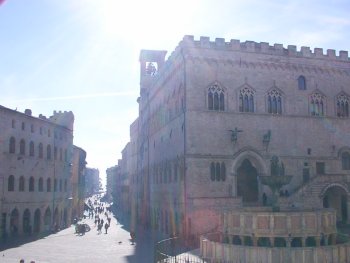 Perugia Perugia
A monumental city, it has superb remains of the Etruscan, Comunal and Renaissance periods, important museums and an active cultural life. Recently restored is the splendid 13th-century fountain with the sculptures of Nicola and Giovanni Pisano. In addition to the long-established State University, its University for Foreigners is very highly regarded and attended by students from all parts of the globe. Among the musical festivals: Umbria Jazz in July and the "Sagra Musical Umbra", in September. In the photo: Palazzo deiPriori and the medieval fountain in the centre of the city.
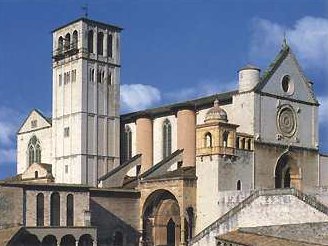
Assisi
The town of Saint Francis is the headquarters of the worldwide movement for peace among peoples. Its superb architecture and inestimable frescoes by Giotto, Cimabue and Simone Martini are part of an urban structure which derives from its characteristic pink colour an unforgettable light and atmosphere Recently restored is the 15th century "Rocca" (citadel) which looks over the Umbrian valley
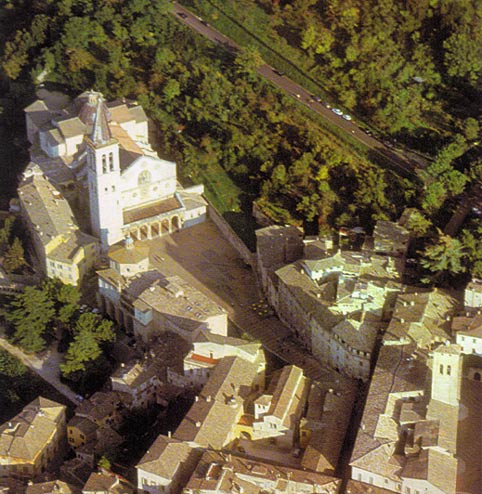
Spoleto
The world-famous Festival dei Due Mondi in Spoleto brings the streets and venues of this town to life with its rich program of theatre, music, dance and varied arts. Founded around the 1960s by Giancarlo Menotti, the Festival is indebted to him for having become a rendezvous, which between June and July each year witnesses the gathering of the faithful from a host of different countries. In the photo: the Cathedral and the central square.
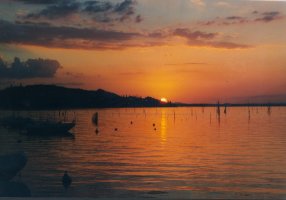
Lake Trasimeno
the largest body of water in peninsular Italy and the fourth-largest in Italy overall. The ferry service from Passignano, Tuoro and Castiglione del Lago connects the shore with two of the three islands: Isola Maggiore and Isola Polvese. Sights to see: in Magione, the castle of the Knights of Malta and in Castiglione del Lago, the palace of the "Della Corgna" family. In the photo: a beutiful sunset on the lake.
In Gubbio
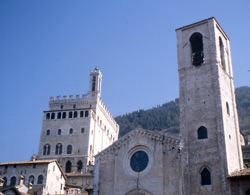 a very characteristic Medieval city, every year on May 15th marks the running of the exciting Race of the "Ceri", the Christianized version of a pagan rite in which five-metre high wooden structures in the form of elongated prisms are carried by the "ceraioli", or bearers, who run through the city streets and up the mount where the Basilica of the patron saint, Sant'Ubaldo is located. In addition, at the end of May is the annual festival with a crossbow competition in period costumes. In the photo: Gubbio's medieval skyline, nestled against
the slopes of Monte Ingino. a very characteristic Medieval city, every year on May 15th marks the running of the exciting Race of the "Ceri", the Christianized version of a pagan rite in which five-metre high wooden structures in the form of elongated prisms are carried by the "ceraioli", or bearers, who run through the city streets and up the mount where the Basilica of the patron saint, Sant'Ubaldo is located. In addition, at the end of May is the annual festival with a crossbow competition in period costumes. In the photo: Gubbio's medieval skyline, nestled against
the slopes of Monte Ingino.
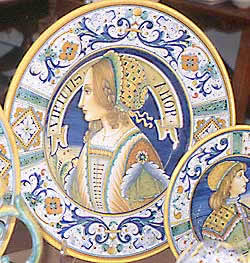
Deruta
is on the road towards Rome, 20 km from Perugia. Famous in Renaissance times for its lustreware majolica, its "gamelii" and plates with "le belle", it also boasts an important artistic production in the decades before the last World War. Sights to see: the Pinacoteca, the Ceramics Museum and the surrounding artisan's shops.
|